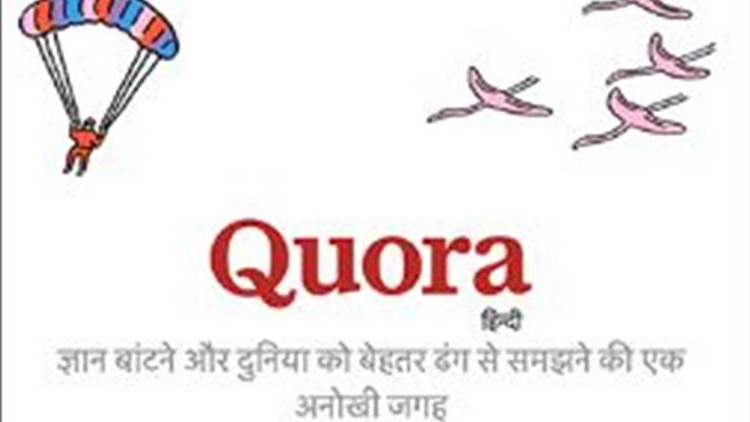
When California-based social media company Quora was launched in 2009 the idea was to create a platform to ‘share and grow the world’s knowledge’. Over time this unique question-answer platform has grown to serve more than 200 million unique visitors, a significant percentage of which is from India. On Thursday, the platform launched its Hindi language version, making it a significant moment in their operational processes in the Indian market.
“We have chosen to launch Quora in Hindi for many reasons. One is of course that we want to share the world’s knowledge and that does not exist in English only,” says Gautam Shewakramani who is the country manager India at Quora. He adds that from a pragmatic point of view, global research has shown that Hindi is a very large language in terms of online usage. “Within Quora as well we have users who have given us signals that they speak Hindi and they want Quora in Hindi,” he says.
Quora allows users to ask any question that concerns them and the question is then made available to anybody and everybody to answer based on their personal experience and knowledge. In the past couple of years, Quora has been expanding the language base of its platform. In 2016 it was launched in Spanish. The following year they launched four new language portals including those in French, German, Italian and Japanese. Earlier this month, they launched Quora Indonesian and then made their entry into the vernacular market of India through Hindi. “We know there is a demand for the website in other Indian languages as well and have been planning on these lines,” says Shewakramani.
But with the launch of the website in Hindi, there is a unique cultural space that the platform has also decided to enter, with a specific set of challenges that come with it.
An important point that could be raised on the necessity or the lack of it for Quora launching in Hindi is the fact that with almost all major operating systems supporting the language, users across the world are able to access the same information in Hindi as is available in English on the web. However, it is also necessary to keep in mind that this issue might be specific to India since here a large majority of internet users are bilingual or multilingual, having some degree of knowledge of English. This is definitely not the case across the globe, with a large number of countries speaking in a single language.
“From a personalisation standpoint, the type of content that is generated in different languages is different. The answer to the same question might be different in English and Hindi might be different based on cultural background and who is writing the answer,” says Shewakramani. He adds that there are some topics that they have noticed to be more popular in India than anywhere else which include, technology, education, life, and relationships. “Hindi also becomes very important because there might be topics which Hindi speakers might want to converse about but are not finding the means to do so,” says Neha Agarwal, community manager, Quora India.
When launching a knowledge sharing based website in a vernacular, it needs to be kept in mind that while every language does indeed carry within it a specific kind of knowledge system, it is also true that global knowledge systems are also interlinked through the medium of English. Therefore, there is a possibility of a large number of Hindi language users of the website being kept away from content that is created in English. “This is an issue of translation. We as a platform will not translate content on behalf of our users. However, users have the option of translating their own content as well as other content. Credit will be given both to the original author of the answer and the translator,” says Shewakramani.
Further, there is also the challenge of Hindi language speakers who do not read and write in the language but are eager to access knowledge through visual or auditory means. “We are truly agnostic to the medium that used for sharing knowledge. So far text has been best at sharing knowledge. We have been experimenting with video recently and it’s very clear that over time we will have to experiment with other mechanisms,” explains Shewakramani.
How student movements shaped Indian politicsPremium Story
A perfect drive? Only in your dreamsPremium Story
Down the Mekong into Khmer PastPremium Story
Personhood status for animals?Premium Story
Capturing the changing nature of Bengal through photographsPremium Story
A family road trip across Uttar PradeshPremium Story
Expert Explains: How the Northeast was ‘invented’, 52 years agoPremium Story
India's dark chocolate market: Who is taking the biggest bite?Premium Story
Reinventing Crawford: Inside one of Mumbai's oldest marketsPremium Story

 Adrija RoychowdhuryAdrija Roychowdhury leads the research section at Indianexpress.com. S… read more
Adrija RoychowdhuryAdrija Roychowdhury leads the research section at Indianexpress.com. S… read more







